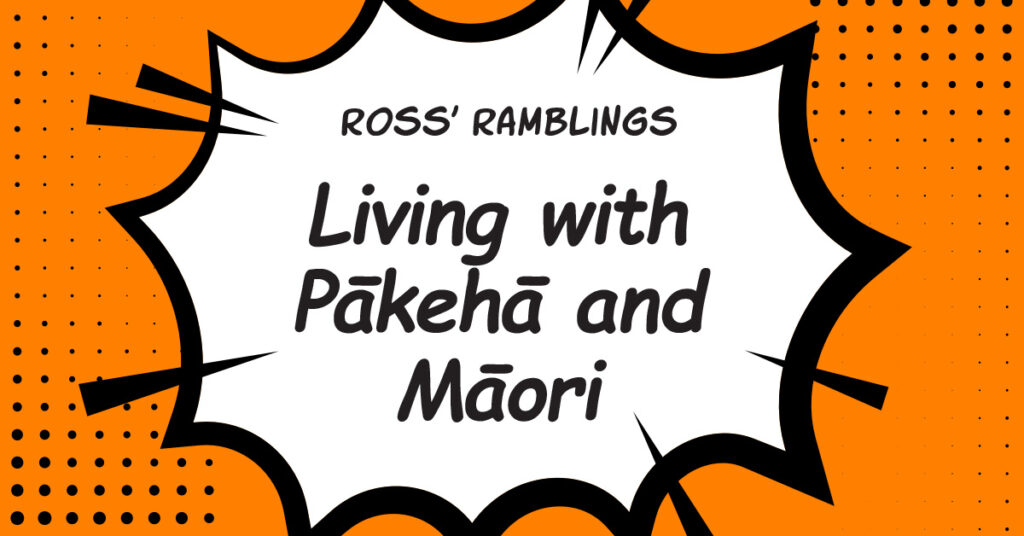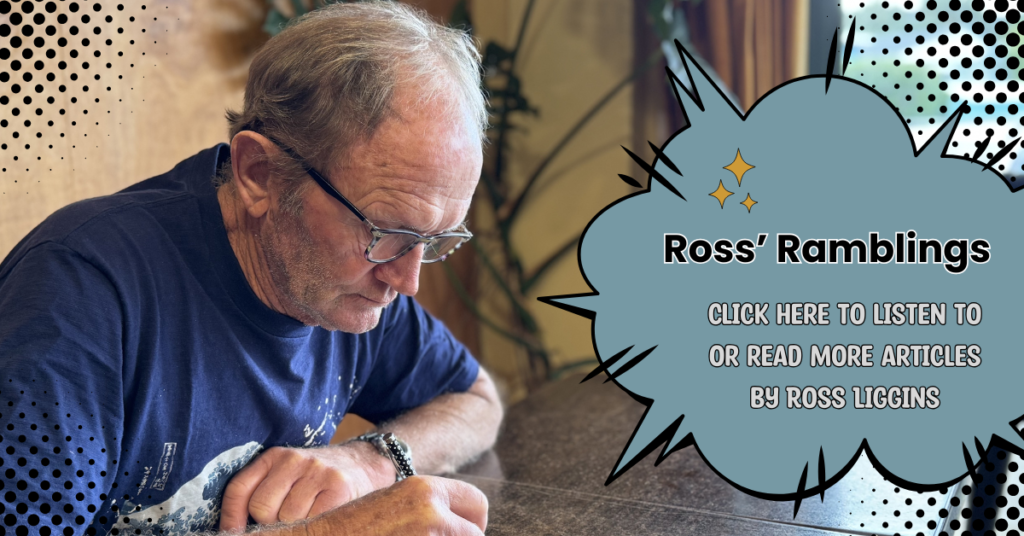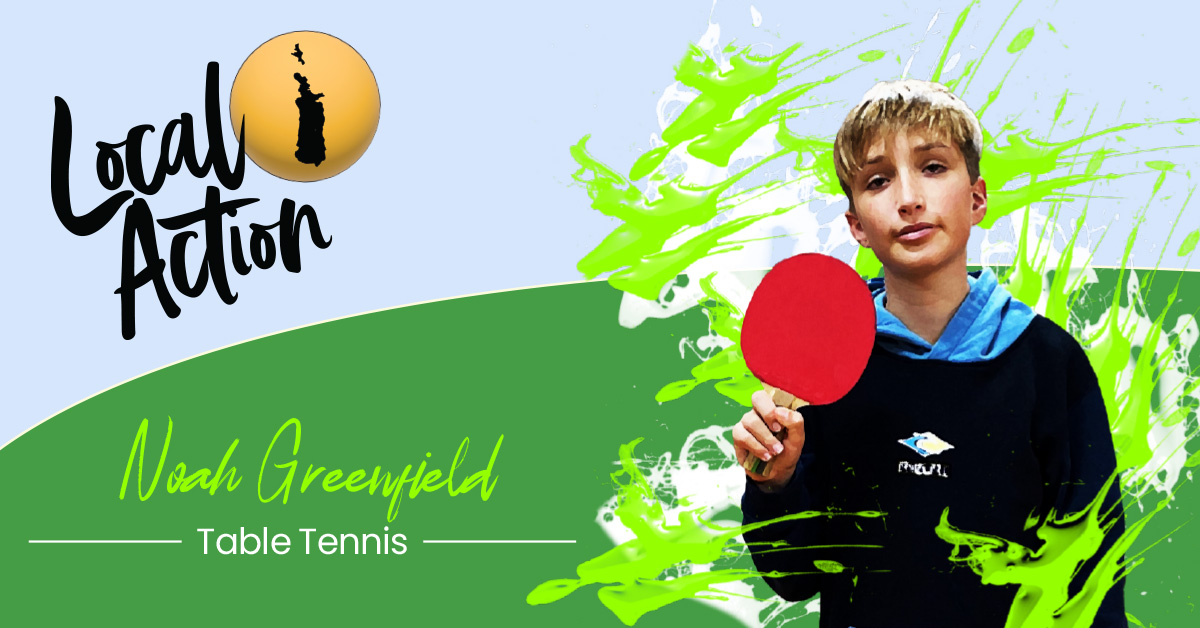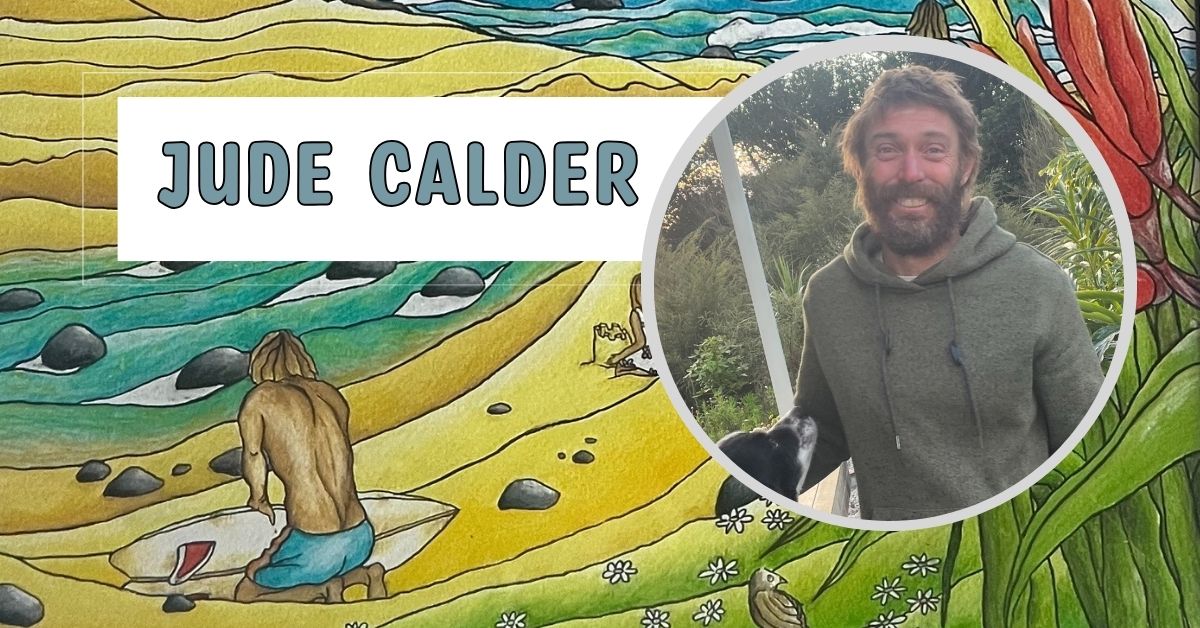
I attended a private high school in Auckland at which the students were all white except for one Māori boy called Ben, so obviously there was no whānau room and no te reo Māori taught. Most of us had little experience of Māori culture. However, for me, that was about to change. After leaving school at the age of 17, I went to work in the King Country as a ‘rousie’ in a shearing gang. I was the only white boy in the shed, but I felt privileged to be part of their travelling working culture. Believe me, it was hard work but I wouldn’t have missed those days for anything. Hay and silage making followed a similar routine, with a mostly Māori team working from dawn to dusk to get the hay undercover before the rain came. Work was followed by a big feed of good old meat and veges cooked by the gangs’ chefs and maybe a solitary beer. Sleep came early so we would be ready for another 12-hour day on the shearing floor or on the end of the silage fork. A few days usually cut out the work at each farm, whereupon it was off to the next shed or silage stack to set up for the exhausting days ahead. It was a good life.
A few years later, on returning to Aotearoa after three years travelling in Asia, Europe and North Africa, I enrolled in Auckland Teachers’ College which taught me more about Māori and Pacific peoples’ cultures than I had ever learnt from the pro-Pakeha biased school history books of the nineteen fifties and sixties. We went on marae visits and I taught in south Auckland schools, finally getting to experience the warmth of their cultures first-hand. I don’t know why, but each time I have been on a marae, it has brought up lots of emotions and I have had trouble fighting back tears. I’ve been told this is a common experience. I had students who lived in low income, often overcrowded, homes who had never been to the beach or into the Auckland CBD – so different from the privileged kids in the area I grew up in. However, despite the poverty and lack of what we call ‘world experience’, in general, most of the Māori and Pacific kids were proud of their culture and had a happy, positive approach to life.
I eventually ended up in Whitianga in 1990 and for the next 25 years taught at an English language school with mostly Japanese, Koreans, Swiss and a few other Europeans from countries like Germany, The Netherlands, and Spain. It was during this time that a disturbing attitude revealed itself when I periodically gave my students the homework task of interviewing their host families about how they viewed the tangata whenua of Aotearoa. I expected the students to report back about Māori culture, history, some te reo words and the like, but was shocked by some of the anti-Māori attitudes of some of their hosts – replies like, “They are lazy, a lot are crims and bludgers and so on.”
Well, as you can imagine, the ‘lazy’ label didn’t fit my King Country shearer and silage-making work-mates, and although I knew about the disproportionate number of Māori in our prisons, none of my Māori friends engaged in criminal behaviour as far as I knew. In fact, at the time, I knew a lot more Pākehā who lived somewhat on the edge of the law, including lawyers, high-profile business people and local politicians who ended up in jail. I also remember more recently, hearing about an ex-local politician here in Whitianga who, when told that a local Māori guy had a new ute, immediately came out with, “He must have stolen it.” I started to wonder how many of these average Kiwis who fostered such negative attitudes had ever taken the time or had the opportunity to engage with Māori and experience some of the intricacies of their culture. Perhaps if they had, they would be a lot more accepting, perhaps eventually modifying their attitudes – like many have towards the Japanese, after hosting students during their time here in Whitianga, with old prejudices from the war years slowly being broken down by close relationships with descendants of the old enemy.
As for the ‘bludger’ label that some of our host families used, statistics actually show us that welfare fraud, although a significantly lower cost to the country than tax evasion, is investigated much more, resulting in more serious punishment, including prison sentences. I would have to ask the question, who are the real bludgers in our society? Are they the 3% of our society, be they Pākehā or Māori, who are unemployable due to substance abuse, mental health issues, or for other reasons, or are just plain takers? Or are the real bludgers the more well-off citizens who just want more, and indulge in tax evasion or, through the use of smart lawyers, accountants and legal loopholes, succeed in not paying their fair share of tax. Why is it that we have a tax system in which your average Kiwi pays around 20% tax while many, who can better afford it, pay around nine per cent?
So, as a Pakeha who has enjoyed a limited experience of Māori and Māoritanga, I feel that the engrained negative attitudes that some of us Kiwis have towards Māoridom could be greatly improved by simple means like sharing a roast dinner or a hangi together, by talking and getting to know one another, by listening and learning and letting go of our prejudices, just like many of us have done with the foreign students we have hosted
Words by Ross Liggins

Coromind: Coromandel’s Collaborative Magazine

Help us take Coromind Magazine to new heights by becoming a member. Click here
Change the Weather for Your Business: Advertise with Us.
Advertise your business in the whole Hauraki Coromandel in the coolest Coromandel Art Magazine, from Waihi Beach/Paeroa /Thames up to the Great Barrier Island.
Advertise Smarter, Not Harder: Get in Touch






